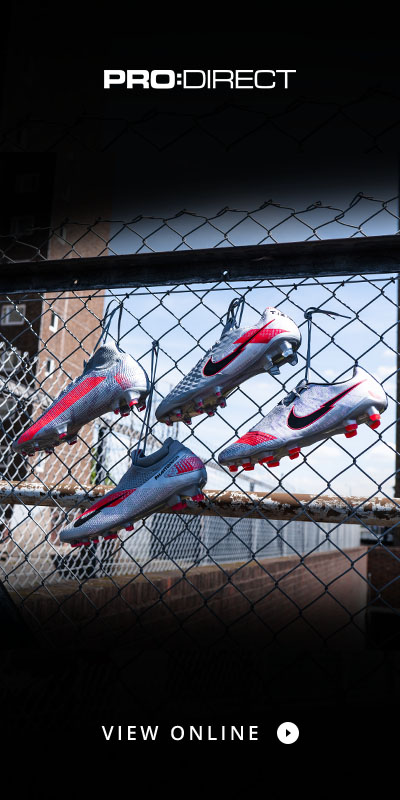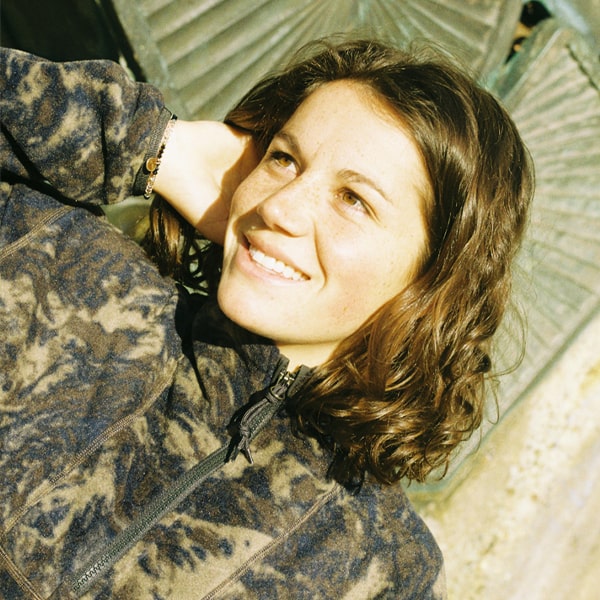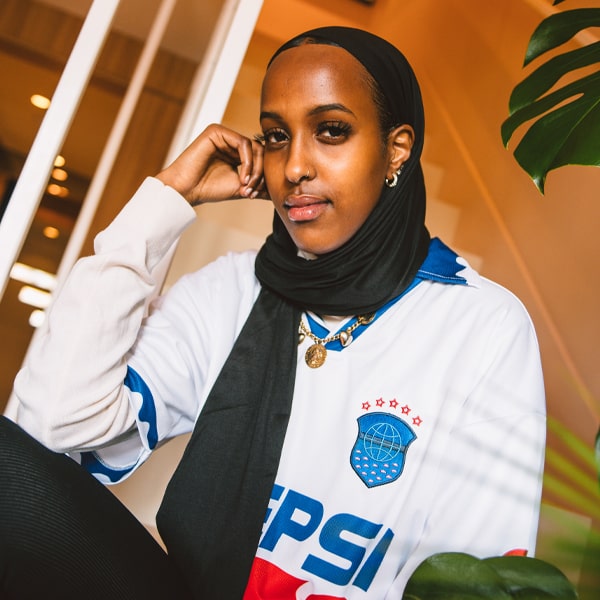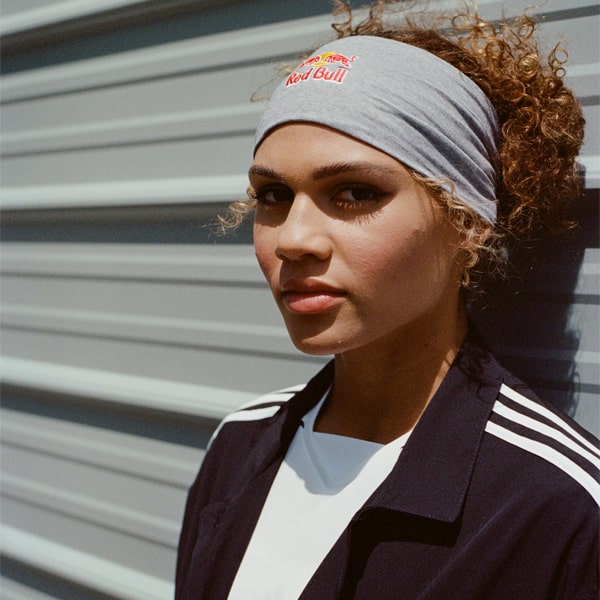Following an intensive rehab during the pandemic, Ada Hegerberg is now preparing to make her return to football. But as well as adding to her 282 goals in 271 appearances and her numerous club and individual accolades, she’s also targeting something bigger: respect and equality in the game.
Ada Hegerberg is one of the greatest players on the planet, as evidenced by her scoop of the first-ever women’s Balon d’Or award back at the end of 2018 and the fact that she’s the all-time leading scorer in the Women's Champions League, a competition she's won a record four successive times. Stats that any player would be proud of come the end of their career. But Hegerberg is still only 25. Following a season-ending ACL injury in January she’s signed a long-term deal with Nike, and now, like football, she’s ready to make a return; to fight for everything that’s important to her once more, as we found out when we spoke with her recently.
To begin with, addressing what’s been a crazy few months for the world in general, how have you been?
Yeah, for everyone, it’s been crazy for all of us. I feel like our freedom has been taken for everyone around the world. I’m not complaining, I’ve been doing very good. Obviously busy and focused on my rehab so I’m considering myself quite privileged during this period because I have everything I’ve needed for the rehab so that has been my focus but it’s crazy to see what has been going on in the world. Hopefully we’ll turn a positive corner soon and can look forward.
Where did you isolate? Were you in Lyon or did you head back to Norway?
So I was in France to begin with. Then I went to Poland to be with my husband because that’s where he plays football. It was very strange - the whole situation. With the whole country being locked down in France, I took the opportunity to go and be with him. It didn’t change my situation all that much because I do a lot of my physio work at home and same for my rehab program - it’s mainly from home but as soon as we managed to get me to Poland, I took that opportunity so that I could be with my husband. I’ve been able to carry on my rehab in Poland and to be with my husband has been really good mentally as well.
With that in mind, it must be nice to have that time with your husband given the commitments of you both as professional players. How do you manage the challenge of being apart during such intense seasons?
Our strength is because we both understand the importance of our careers and realize that we want to maximize our careers now, while we can so that we reach our full potential for as long as possible. That’s the main goal for both of us and a plus point with us both being footballers. The long distance is a challenge, for sure. Having your family and your husband around is something that can give you a huge boost mentally on the pitch too but we kind of accept the situation really and try to make the best out of it. We try to see each other as much as possible and deal with it. We know this situation isn’t going to be for life but we are going to be together for life so that’s how I try to think about it. I think that is a cool thought.
Going way back to the start, was there a moment you fell in love with football?
I grew up in a football family and my parents both played. My big brother played and my big sister played - she’s also professional, playing in Rome - so there was no choice for me [laughs], I remember coming home from doing lots of other activities and sports but they didn’t have any interest in them when I talked about it. Football was always the most important thing in our family. I was the late bloomer in our family I would say. My brother and sister were always the big stars as youth players and I was behind them.
I probably became most interested when I was about nine years old. I remember my mum and dad coming to see me at a game and I just always had this ability to just turn and shoot at the goal. I’ve always just scored a lot of goals since I was young. It was probably then when the motivation really kicked in and I realised that I really wanted to do this. I remember all those Champions League nights, watching it on the tele with the whole family around the dinner table. Clubs like AC Milan, Barcelona, Arsenal and those were the good memories from my youth. We would watch a lot of football together. We’ve always discussed football things.
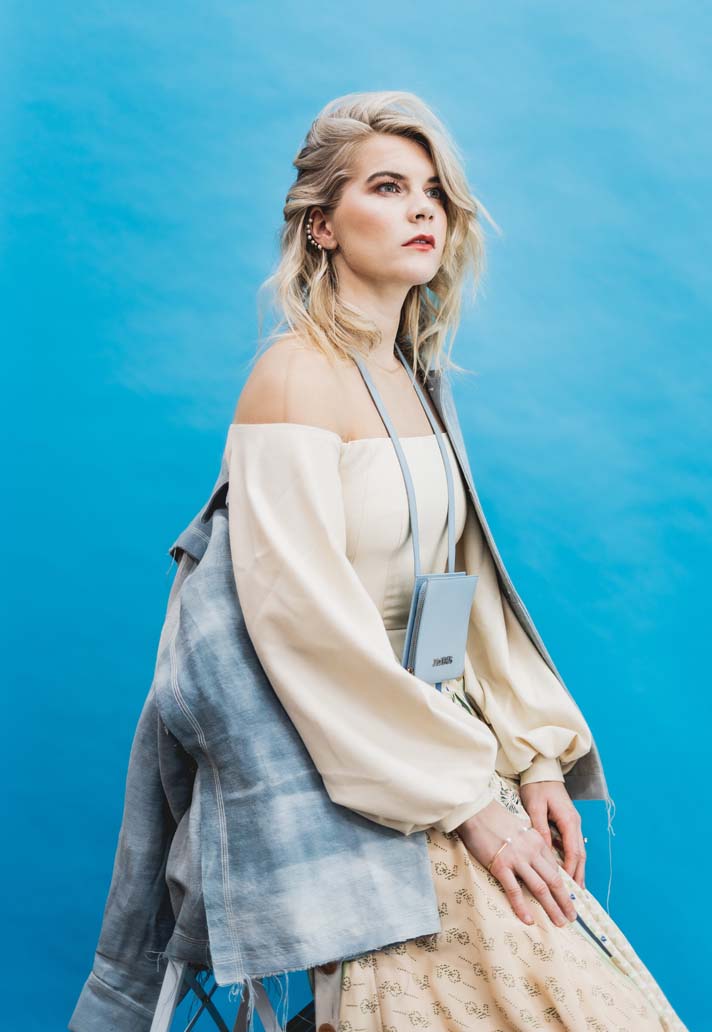
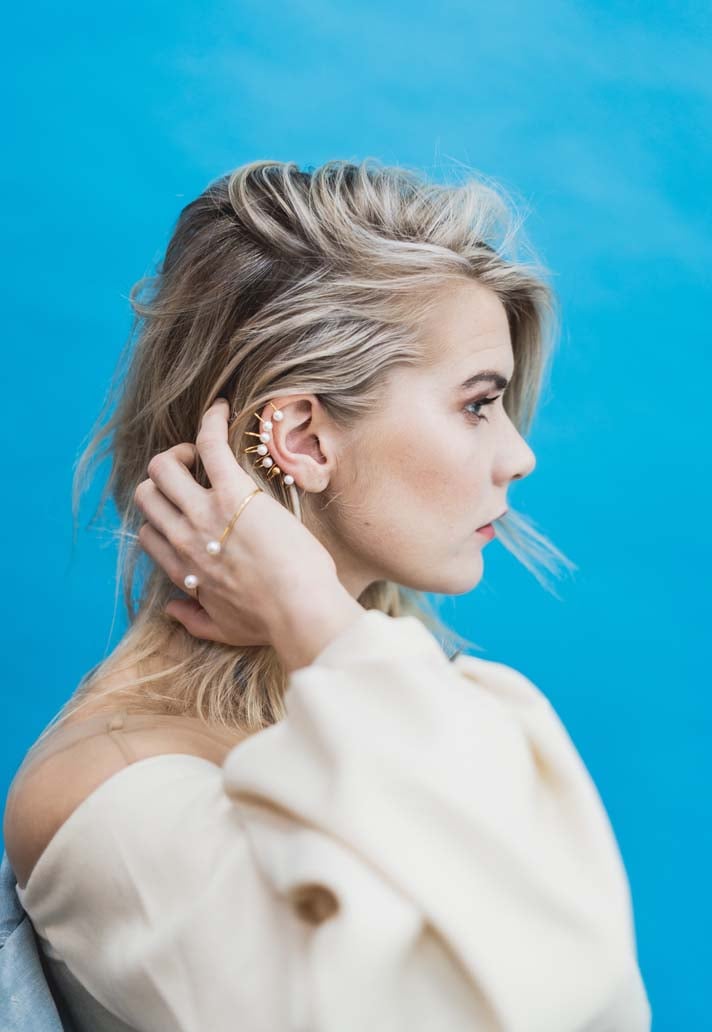
Was it the fantasy and the dream to grow up and become a footballer or did you dream about other things at all?
In the beginning, I remember this story about me being a young kid when I was with my dad and some other people, this lady asked my sister what she wanted to be. She wanted to be a professional footballer. When she asked me, I was like “I’m going to have a proper job when I grow up” [laughs]. So that turned out very wrong you could say. What I think is changing these days is that young girls can actually dream about being a footballer nowadays. Way more than I could when I was young. It wasn’t televised back then and the interest wasn’t the same as what it is today.
So it’s more natural for young girls to set their dreams on being a footballer when they grow up which is very nice to see. I always wanted to go big in football and accomplish things on the pitch but I didn’t realise until I was 15 or 16 that I could actually go abroad and play professional football. It was quite late that I realised this was a real possibility. I was serious from day one but it just took time for me to understand that you could actually go pro with it.
When we talk to a lot of female players, they talk of memories of having to wear leftover kit, all too big and not getting the same level of treatment that male players had when growing up. What were your experiences like? What were the pitches like where you cut your teeth?
I would say I was very lucky growing up. I had my parents backing me who had no boundaries about being a girl who wanted to play football. They always told me to follow my own voice and that whatever I want to do in life, I could accomplish it with hard work. I played with guys where I grew up in a small town in Norway. It was pure football culture there. They started with mixed teams at a young age so boys and girls playing together, and when it comes to a certain age they would split into purely male and purely female teams. Me and my sister, we just stayed with the boys. It was very natural for us because they were our mates.
It felt like a different environment when playing with the boys as opposed to the girls. It was faster, it didn’t have a stigma. If you lost, you were allowed to be angry, you could shout, you can be pissed if you didn’t succeed and this is the thing we’re trying to change in the women’s game. There should be no stigma about girls going all in on their sports and showing it. Staying with the boys team had a huge impact for me in a positive way. It gave me competitive pressure because we needed to perform otherwise we wouldn’t be in the team. I played in Oslo and was selected to be in a regional team where the best male players would play in a regional team. It’s been a great lesson for me.
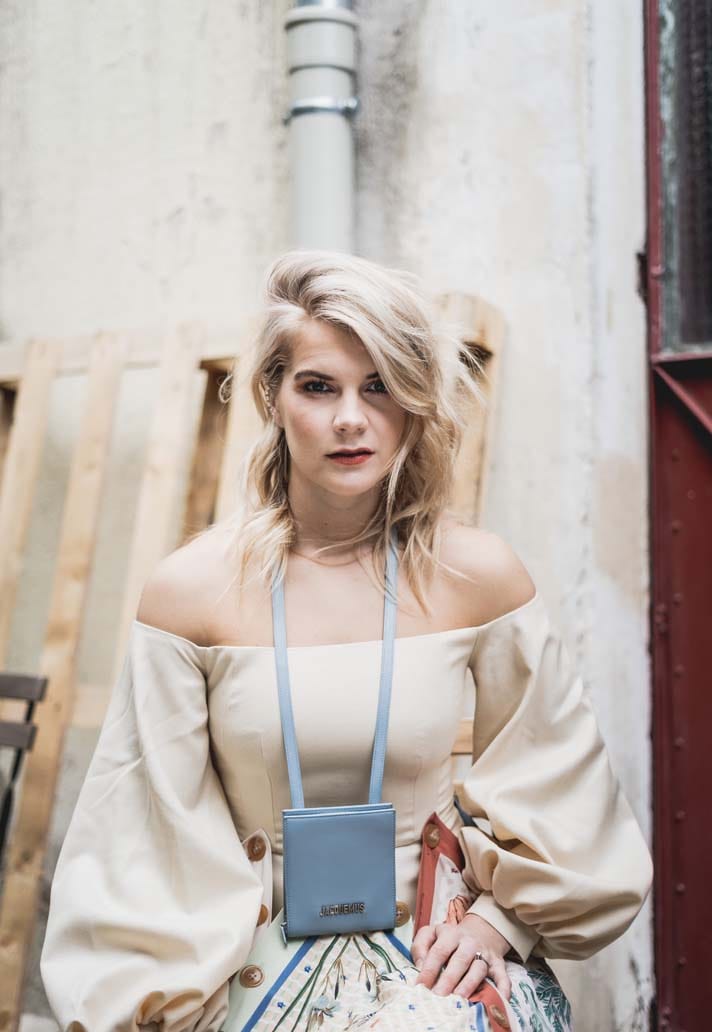
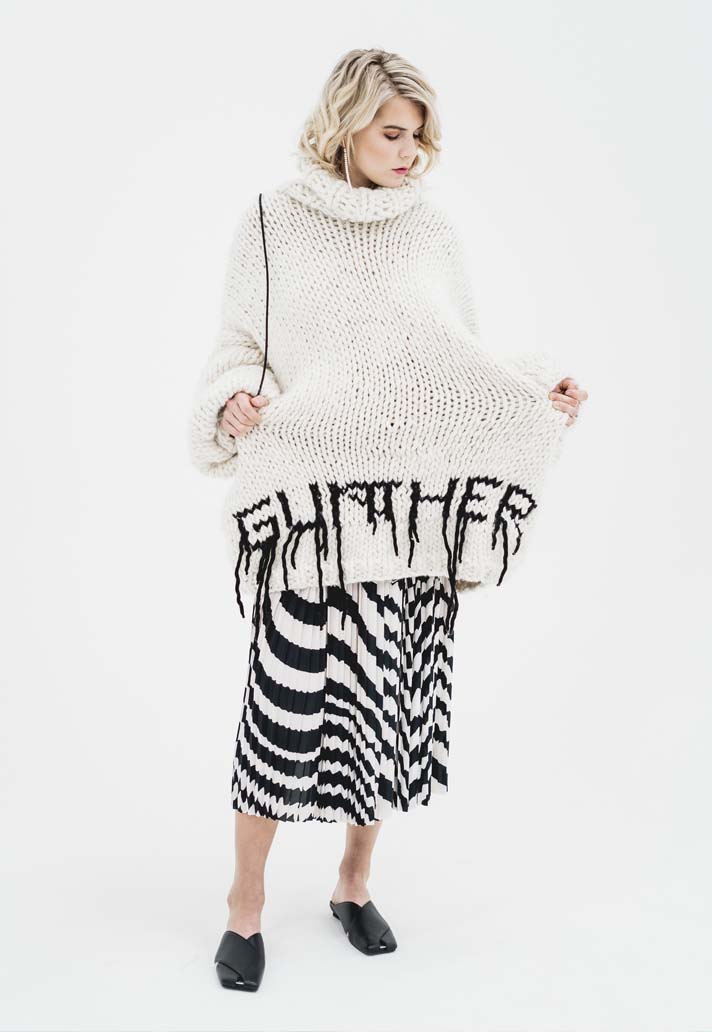
Those experiences, when you fast forward to now being an elite professional, did they give you a hunger to address inequalities between the male and female side of the game?
I think there’s a lot of things to address still in the women’s game but at the same time, I was 17 when I went to Germany for the first time and I went pro. It was a whole different level for me in terms of training. Training three times a day was another big step change you could say. It was very tough. You soon learn that the quality at the top of the women’s game on the professional level is extremely good. For me it was a tough challenge to go abroad, move to another culture. Talking about the boys and girls environment, there's things that need to change today like getting the same level of quality pitches, the same confidence around the place and also allow girls to express themselves in a different manner. Break the stigma about girls being nice all the time and thankful just to be there. It should be about badass girls who want to achieve things and also want to have on the pitch. Being outrageous, showing their talents - I think that’s what football is all about. The boys are allowed to do that. So it should be the exact same thing for the girls. You want people to be able to take you seriously, most importantly.
As a fan, we just want to be entertained regardless of who is playing...
Yes, that’s very important to say as well because in the end you want to have a good product. We can’t forget that we as women’s players need to perform all the time in order to raise the level, to raise the profile and the product. That’s our biggest responsibility. To get to that point, you need to start at day one and day one starts with the same opportunity that is given to a six year old boy, to a six year old girl. That’s all about taking them seriously and I always repeat myself on that - if you start to teach a six year old girl to do a pass rather than to start when she’s 20 years old, you will get a much better product. So it’s all about raising the game and raising the level all the time and giving girls and women the best possibilities in order to perform.
Your mission to create that level playing field has been well publicised but where did you gain that strength and conviction to start being more vocal? There must be so many people out there who share your passionate views but don’t have the character to be vocal about how they feel...
First of all, the most important thing is to perform. I think your performance can give you a position. It can also give you a voice and then you have a choice as to whether you want to use that voice or not. Obviously I grew up in a family where we have very strong values about believing in yourself, knowing your qualities and exploring where you want to go in life. I think they gave me extreme confidence by having those kinds of discussions at home but also it came through years of working hard on the pitch with the aim of succeeding. I think that also gave me a lot of confidence to perform first of all but also shape myself as a person.
I think everything I have been through with football, it’s been a journey and it has shaped me so much as a human as well. You want to see your sport, your passion and the thing you love the most move into the right direction. I think women’s football has so many things to achieve and you really want to leave it for the better when you stop playing it. That’s what I want to do as well. Performance really is number one. If there’s no performance then you won’t be in a position to make that change either.
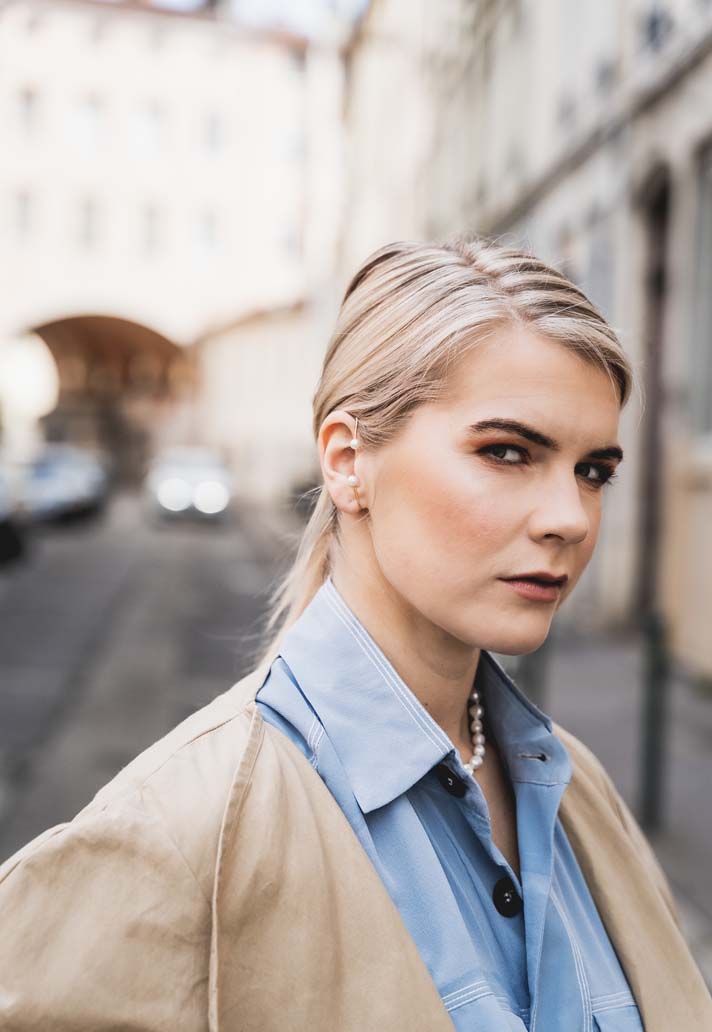
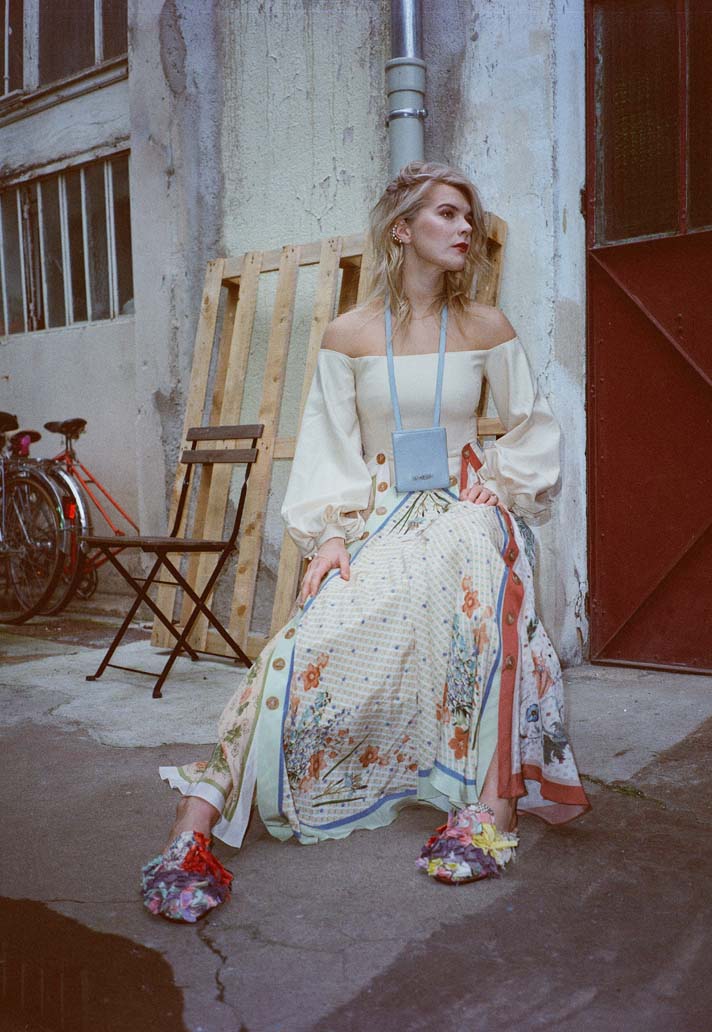
I think everything I have been through with football, it’s been a journey and it has shaped me so much as a human as well. You want to see your sport, your passion and the thing you love the most move into the right direction"
Away from football, are there people who inspired you or people you look at now and you really back their cause or take motivation from?
I think my mum has always been a strong character for me since I was little. She’s a force. I see more and more women these days speaking up for important matters. I always had male footballers as idols from Thierry Henry to Messi and Ronaldo today but I feel like when you have women athletes such as Serena Williams, it’s so important to have people like her in sport to make the change for all the other girls all around the world to stand up and be bold. Generally, I’m inspired by people who go all in and work hard and achieve the ambitions that they put out for themselves. That can be anything from in sports to also outside of sports.
When you talk about ambition and re-creating history, how does it feel to have genuinely done that. First female Ballon D’or winner, on the pitch your record is ridiculous and off the pitch you’re leaving a mark as you push the game forward...do you ever take a step back to appreciate that?
It’s funny that you mention it now because now is the first time in my whole career when I’ve actually had the time to take a step back and kind of reflect on everything and look at the whole adventure. I like to call it an adventure because it has been some crazy years with so many experiences and with this long-term injury, which is also a new experience, I actually get the time to think and reflect in another way. When you’re in the game it’s all about the next game and the next season and it’s rolling you know? You don’t have that much time to stop and rest because football is so fresh and you need to perform every day. There’s a new game, there’s a new title to win.
I think it’s very important to keep a balance to enjoy the ride while you still push for the next thing. I always try to be a little bit better at actually enjoying the present. To be happy with those small things in life on a simple day. I think that’s something we’ve all learnt from this time through lockdown as well. It’s the small things that matter and we need to put a break on life sometimes and stop and think about the things you appreciate in life. I feel like football, business and society, it’s so driven by speed. So it’s actually cool to take a step back and enjoy it as well.
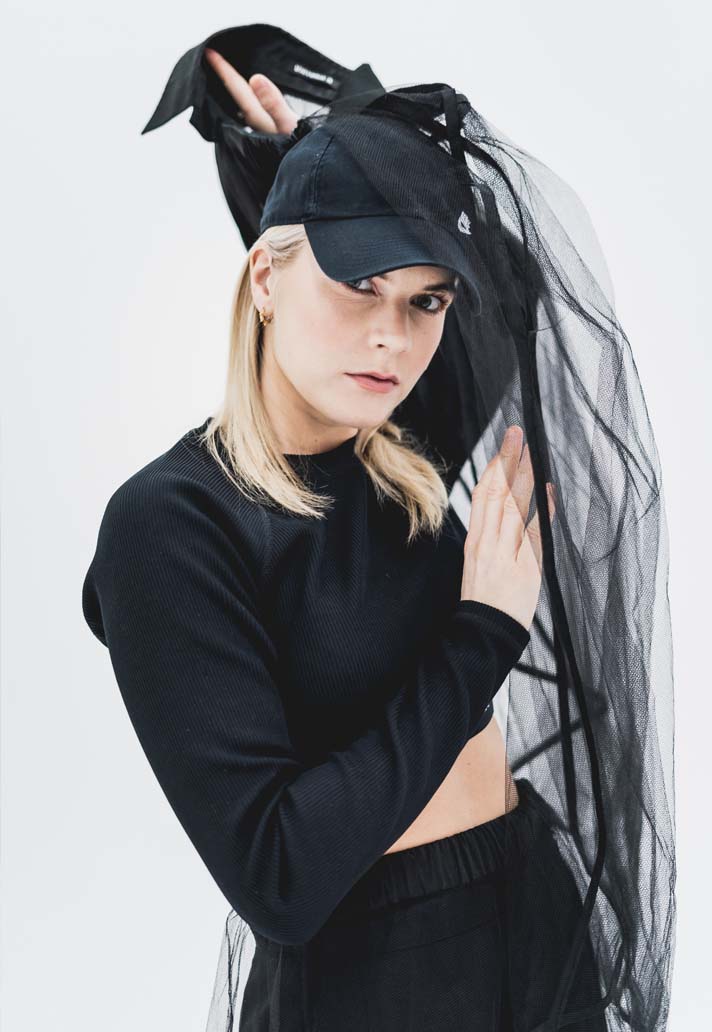
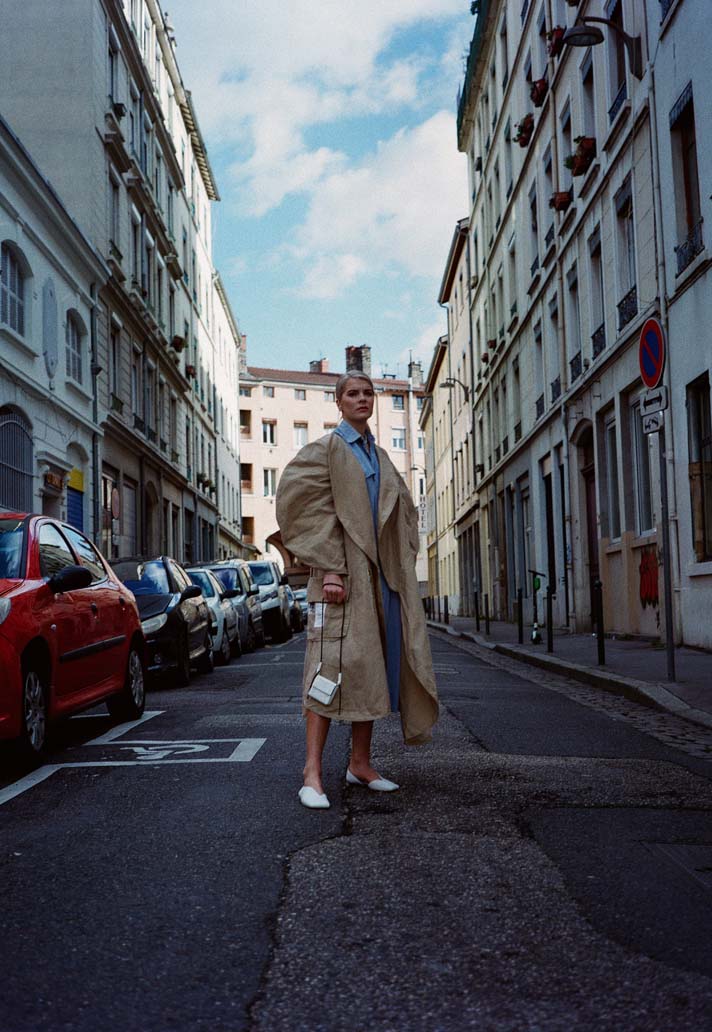
It definitely puts things into perspective. Are there specific things you’ve learnt about yourself over the last few months that you didn’t know before?
It’s probably that I’ve learnt to appreciate those small things in life. Grateful for being healthy, my family is healthy, I feel privileged by having good people around me. Grateful for all the people who have helped me through this rehab. It’s been a huge challenge to come through this injury. Once I got past those two months, they were almost legendary, they were the worst, with so much pain, you don’t feel in control of your body. Now we’re through that, I feel in control of my body and my mind and I feel like I’m in good spirits. I feel like I’ve understood once again that even though it’s been a big challenge, I know that I can face it. That’s why I don’t think I’m going to come back as the same player as before this injury because you face so many things mentally and physically so it’s going to be an interesting comeback and I’m so excited about it.
You must be so hungry to hit the back of the net again?
[laughs] Oh yeah totally. I’ll be 100% ready.
When you say come back a changed player, the plan is still to smash through the records you’ve set isn’t it?
Yeah absolutely, that’s the goal, no question. [laughs]. If I look back at my career when I’m finally done and I’ve done it all, I’ve given it my all and I’ve maximise my potential, I think I’m going to be quite happy. But, I think there’s still a lot of things to do, there’s still a lot to work on and that’s what motivates me at the moment. To just work on every detail and really maximise everything I can.
When you hit one milestone, do you instantly reset and lay out new targets to aim for?
Yeah I think it’s very important to always set yourself short term goals and also long term ones. You should have those big ones that are far away to give yourself something to work towards and reach for but it’s also very important to have those small short term goals. As simple as succeeding with a pass in training or to be able to jump on a box that’s a certain height. You always have to feed yourself during the process. By seeing those small steps and the progress being made, conquering those short term goals, it will keep you motivated for the long term goal. It’s a constant balance. When I ran for the first time after this injury, it felt as big as winning the Champions League final for me. I feel like I have those small but big victories along the way that keep me going. It’s cool to experience them.
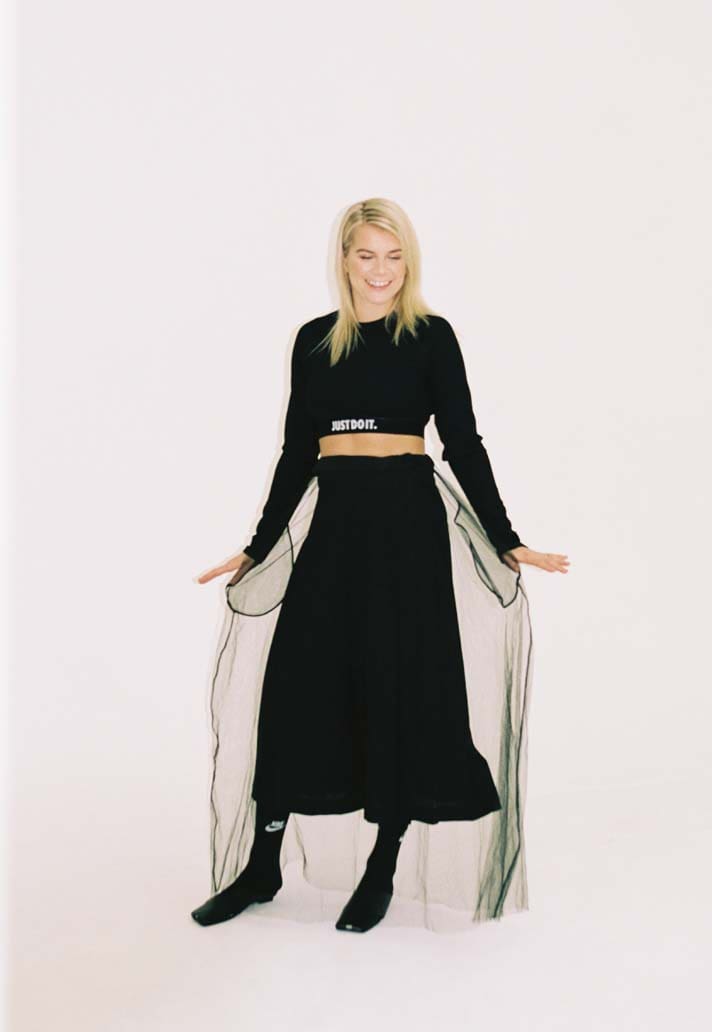
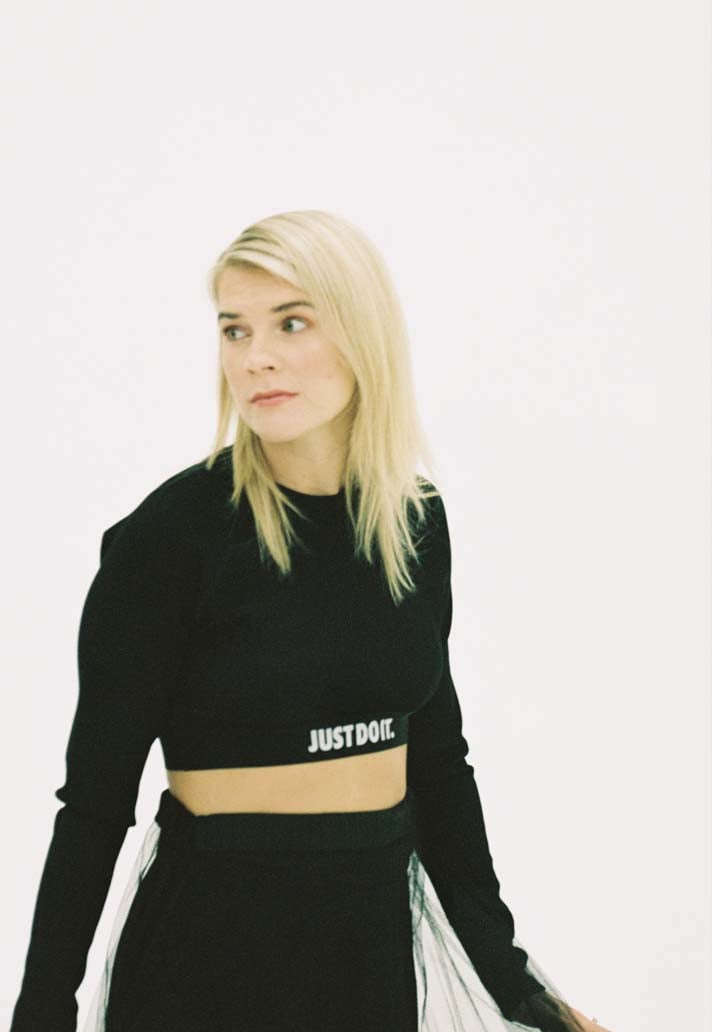
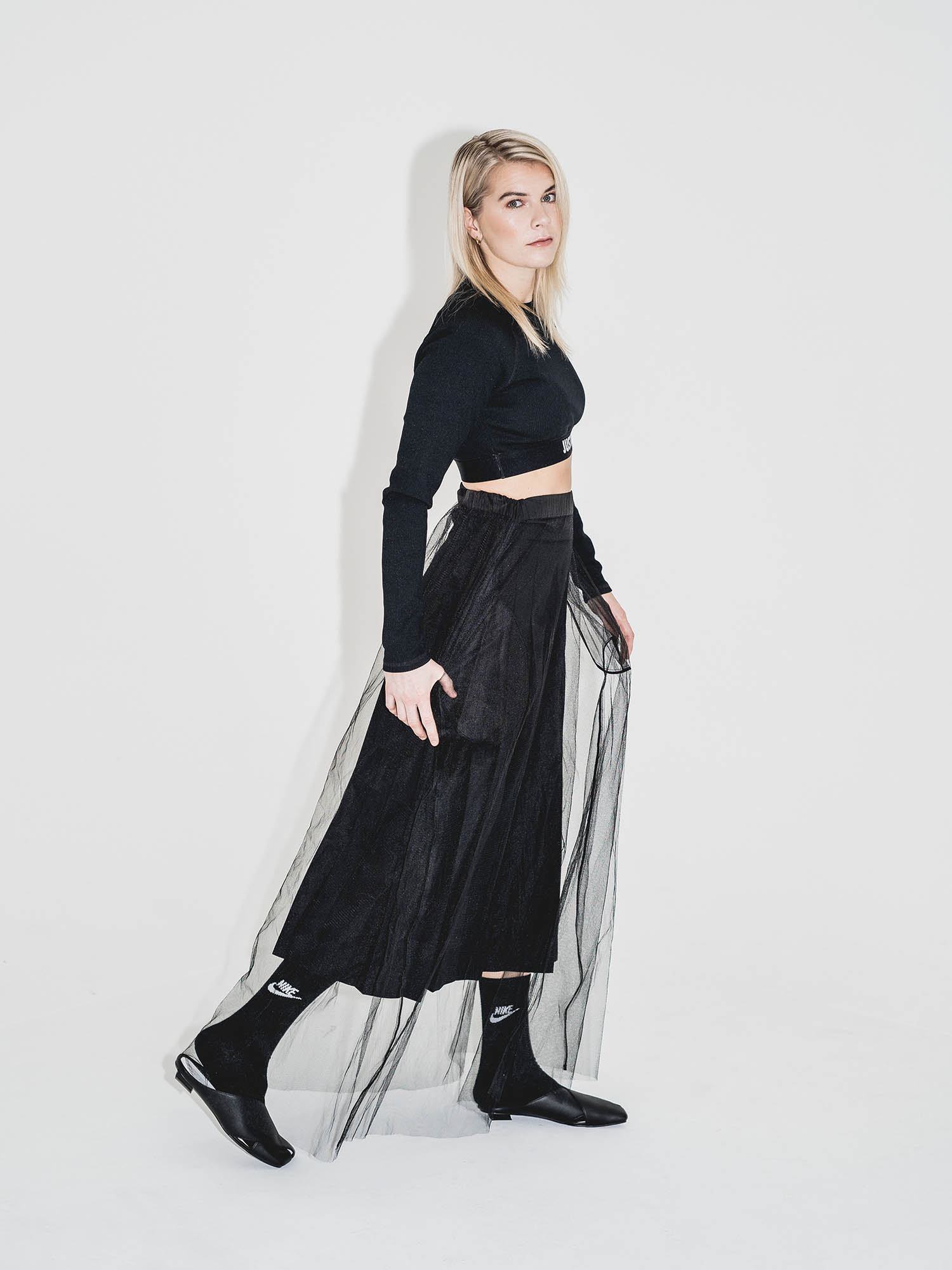
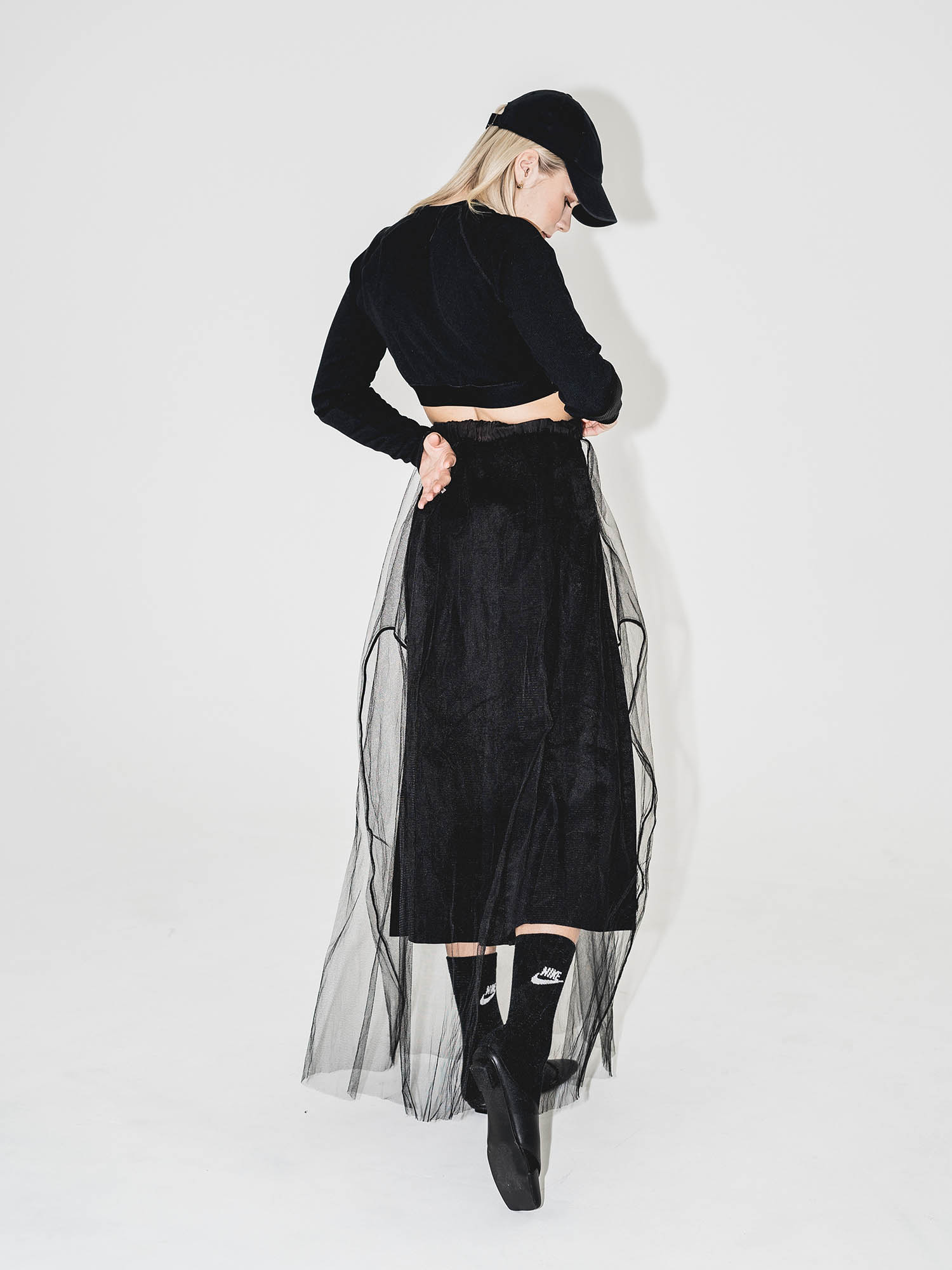
We all want the same thing, and it’s the respect that we deserve”
If you can compare winning the Champions League final or picking up a Ballon d’or with that first run post injury, it says a lot about your character. It’s an amazing perspective to have...
[laughs] Oh yeah, I’m never going to underestimate my strength again when I get back on the pitch. I feel it when I’m in the gym nowadays.
How do you keep grounded given everything you have achieved?
The main goal is a bit of a cliché but also the realist advice that I was ever given was to just be yourself. What people need to understand is that what is important to me is someone being themselves. You need to be yourself throughout the whole process to get to the top. You also need to be yourself when you are on the top, in order to stay on the top. I would say that it would be boring to be another version of yourself because everyone is already unique. We should celebrate that.
I know what needs to be done in order to stay at the top so there’s no point of changing. You’re still the same game, only now you’re more experienced and that’s probably what was the biggest challenge after winning the Ballon D’or for example. I felt like I was still the same girl but I felt that people would have a different view of me. That’s all part of it. As long as you can look yourself in the mirror every night, I feel that that is the most important thing.
It’s interesting. In some respects the bigger name you become, sometimes that can act against you. Take pausing your international career as an example - how much support did you have from people you didn’t know when you made that decision?
First of all, you have to be sure before taking a decision like that. I feel like in life, you always have to make difficult choices in order to move on. That was obviously one of them for me and I always had my family backing me as well as my husband, my friends and my management - they’ve all been amazing. I think that’s very important first of all - to surround yourself with people you trust – everyone needs to find the right people for them. I think a lot of people go through the same thing really. Especially in women’s football.
There are a lot of battles going on around the world for people who are not well known and ultimately we all want the same thing and it’s the respect we deserve, the possibilities we deserve and the opportunity. I’ve got a lot of stories and messages from people in the same situation but on different levels. We all know it’s a common challenge and there’s still work to do but it’s moving along. The more voices you have that can help push the sport forward, the stronger we’ll be and the more impact we’ll have.
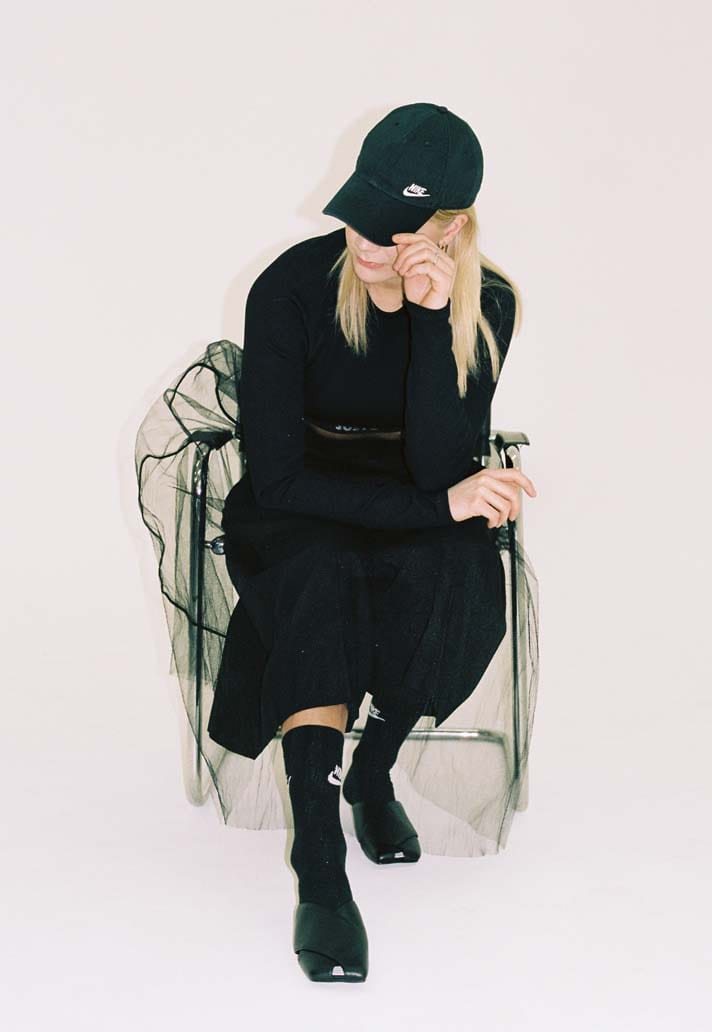
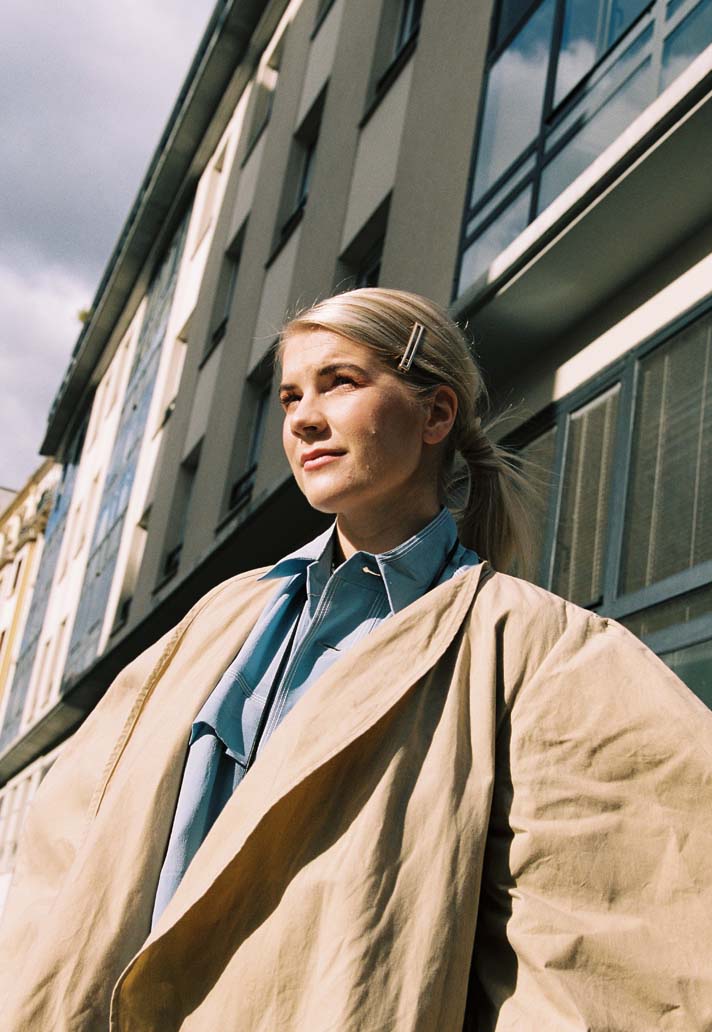
What did you make of the 2018 World Cup as a whole? While you weren’t involved, it felt like another watershed moment for the game didn’t it?
Yes, and I really feel that this has been the case for every big tournament. World Cup, Euros, there’s been this great and enormous increase of interest around it. It pushes the whole game through the roof for a month. That’s been a very good thing but the challenge is always, how do you maintain that interest throughout the whole season?
When all these good players go home and back to their clubs where you have some of the best players playing together and you get so many good league games, so many good Champions League games – that’s where you feel that the interest goes away – when the girls go back to their clubs. That’s where we all have a responsibility to maintain that interest. The clubs, UEFA, FIFA, they all have a lot of work to do. Us players, we also need to continue to raise the level – to perform, in order for the media to hang on and get people coming back to the games week in and week out. I feel like that’s the biggest challenge at the moment. Every tournament is a big thing and there’s huge interest, which is so good but you just need to maintain that interest throughout the whole year.
What are those changes that we need to make in order to shine more light on the club game so that interest doesn’t just spike at tournaments in phases?
It’s a good question. I feel that we all have a part in this. I always look at myself and us as players as to what could we do better in order to develop the game and develop the level - the answer is to ultimately work harder, year after year and make sure you stay out of that comfort zone. That’s our main job in this.
Then we also need help to develop the product because I think that if you come to a place where the product is really good and you perform, it’s also impossible not to see us and to take notice. I think people will have fun watching us play. We’re here to entertain. There’s a lot of things going wrong on the road that would provide the best product. I don’t know if it’s because girls don’t have the same opportunities to actually grow their talents and become better from a young age if they can’t see a future in it.
Not all the women players, right now, have a professional life. When you’re not a professional, it’s hard to give the best version of yourself and deliver. So there’s a lot of things around this question. We’ve got a way to go but the more and more people who see the value of it and put more professional standards into the sport, the bigger the benefit will be.
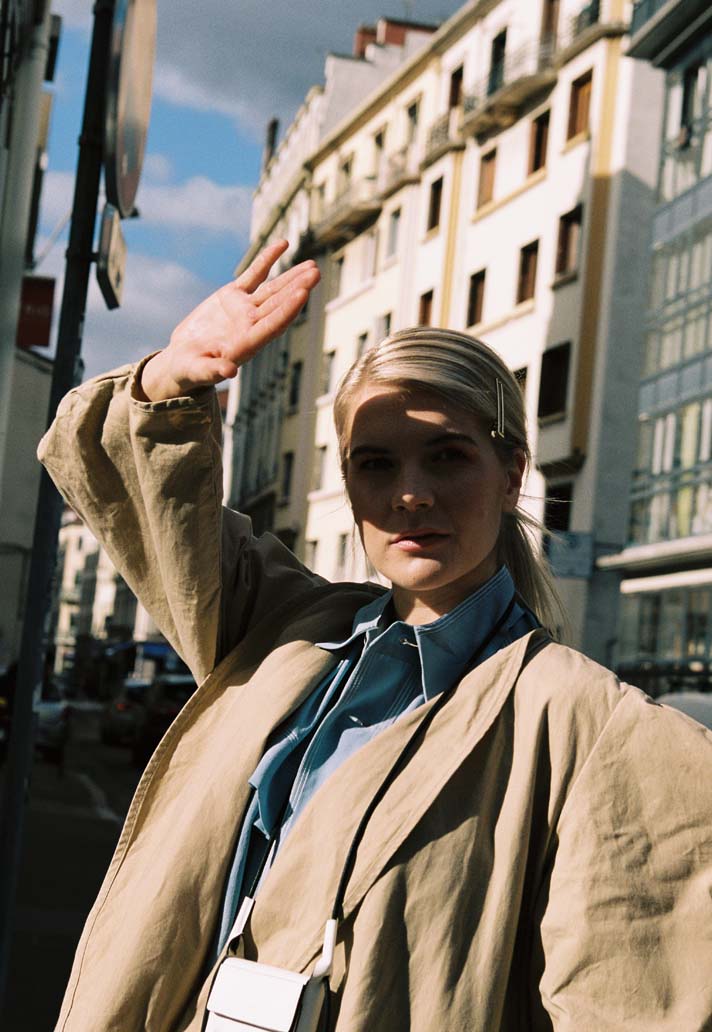
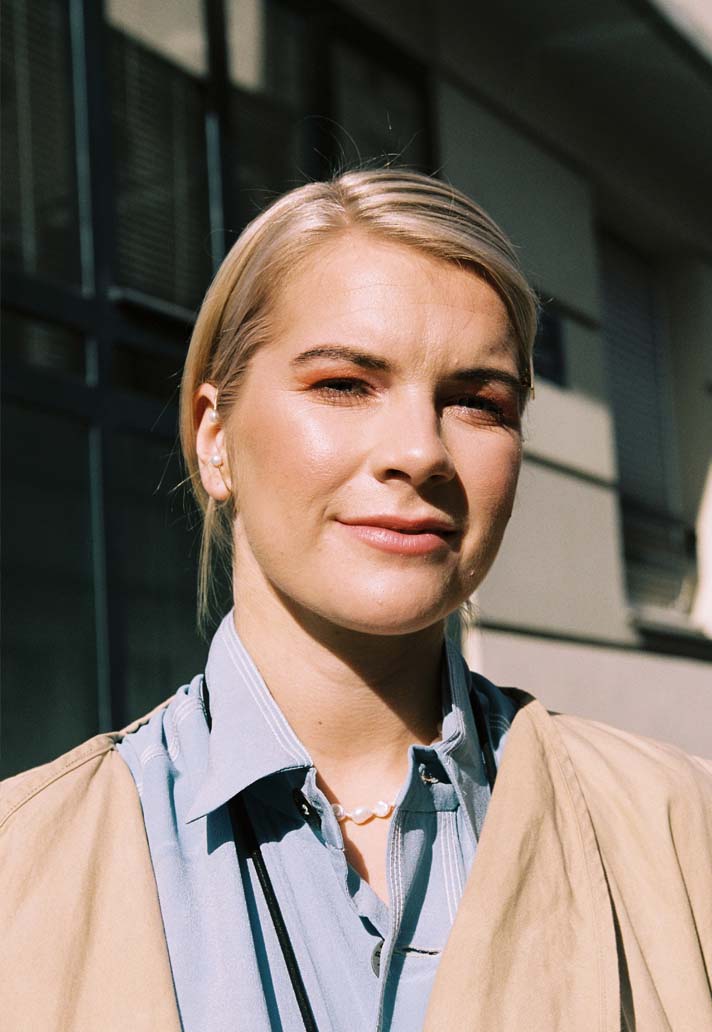
If you’re talking about entertainment, watching goals, your levels are so high. Coming up to 300 career goals as a professional at the age of 25 is crazy. You could end up with 600-700 goals in your career by the time you finish – is that the aim?
Statistics is very important for a player and for a striker specifically. In terms of chances created, chances taken and all that kind of thing. It’s fun to look back at it now. When I’m in it, it’s a rush. I analyse myself all the time and I think that’s a very important part of the job in becoming a better player. I do a lot of analysis with my dad. We have been training together since I was nine – he knows me, he watches a lot of my games. It’s always about picking out details in order to stay sharp, season after season.
Recreating success is probably the hardest thing as an athlete. To stay on top year in, year out, takes a lot of self analysis. After each season, I’ll go home to Oslo to my family and we will discuss the season and pick out highs and lows and start to prepare for the next season again. It’s a lot of mental and physical work that goes into scoring those goals. Even a tap in. I enjoy this part of the job – it keeps me hungry.
Do you think that’s a secret to your success as well? All the homework you do on bettering yourself?
For me, it’s quite simple. You need to try and put as much quality across in everything that you do. People ask me a lot about how many hours I train and what goes into that. Obviously there’s a lot of hours but before I think about the number of hours, I think about the quality I put into things. With my dad for example, I know that one hour with top focus, top concentration will give us the best results. Then it’s about repeat, repeat, repeat so that things become second nature. Everything has to be done with as much quality as possible. You have to be extremely focused and train over and over again.
I think you can also gain a lot of confidence from training. Physically and technically. You need to have that confidence in yourself in order to succeed in the long term. The first goal I scored in the Champions League final last year was something I trained with my dad on over all these years. So it’s so good to see that happen on the big stage.
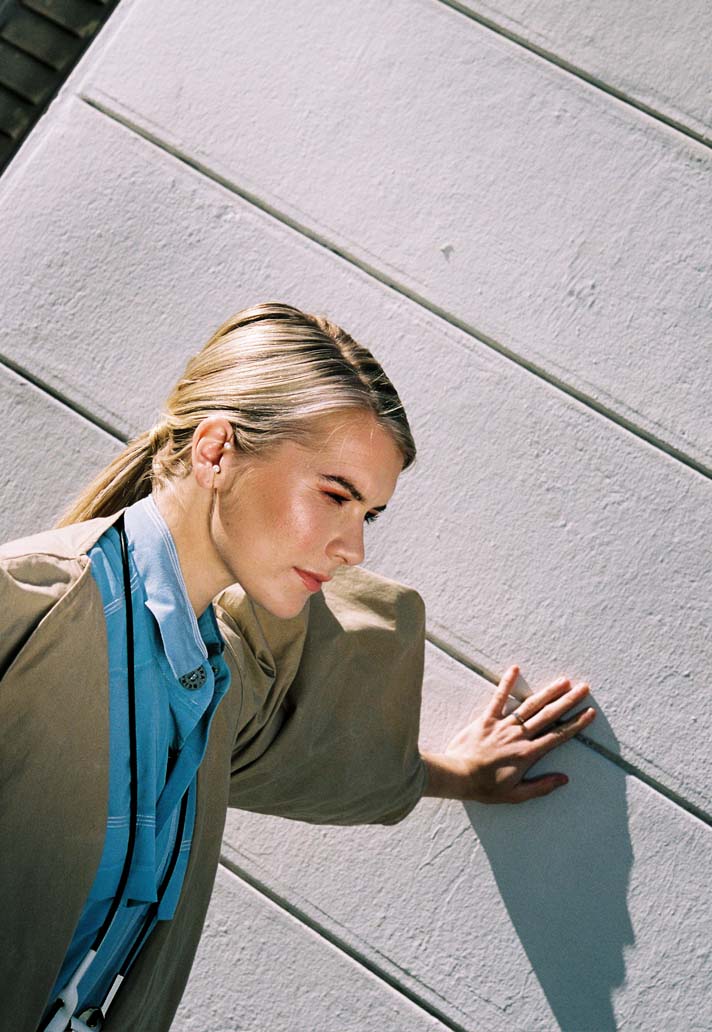
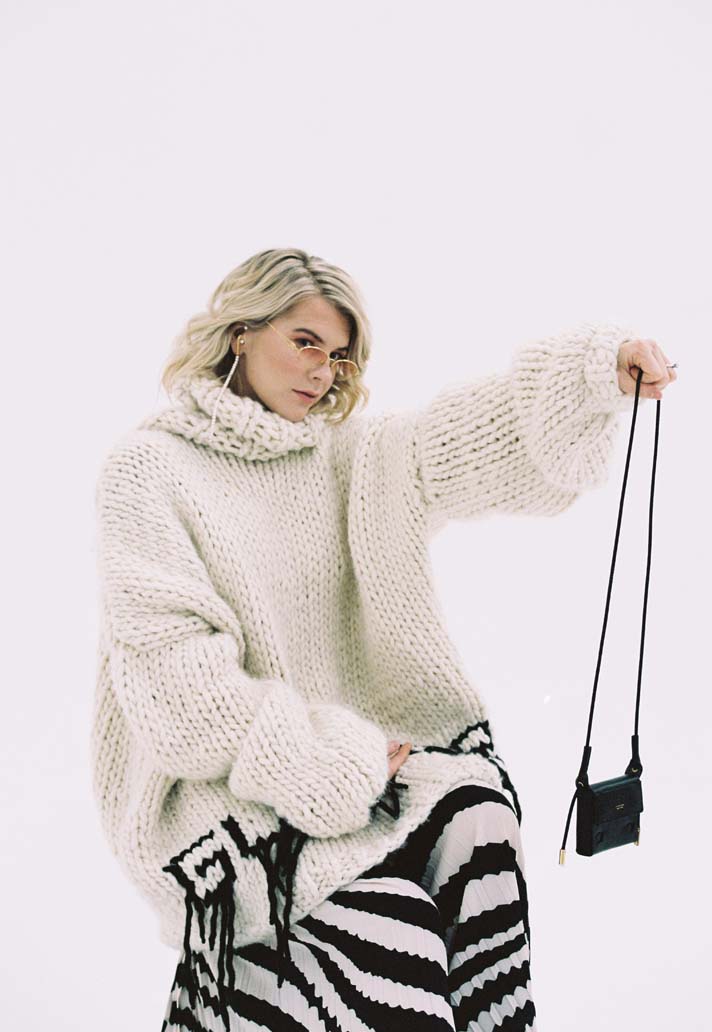
You score so many goals. More goals than games played usually. How do you handle it when you haven’t scored in a game?
[laughs] I was the worst before, I tell you. I feel like I’ve grown with it. You always have to look at the context. If I had a lot of chances in a game and not scored any I would be disappointed. I’d find that hard to accept and analyse the whole game over and over but there might be other circumstances in a different game where your role is different and you’re more in that position to create chances for others.
I think that’s when you’d be a bit nicer to yourself and say to yourself, if I did everything in order to make a chance happen then I have done my job. Either way, it happens - you can’t score in every game. It’s all about analysis after the game and coping with those bad moments.
When you score a goal now, do you still get that same level of excitement that you did when you were a kid?
Yes. Yes. Yes. I would say that is probably the best thing. Every goal has its importance. Even if it was back home, scoring as a nine year old. Obviously there’s a lot of differences in the surrounding when you compare that to scoring in a Champions League final but it’s just this adrenaline rush when you score a goal. They’re all important I think because every goal has it’s story, it has it’s preparation and work behind it. I really appreciate them all.
Has winning become an addiction for you? Look at all that you have won, all those individual and team accolades - does it become the norm?
I would say that I was very lucky to get to Lyon in 2014. It was this master club with the best players and I felt like I was welcomed since day one. Playing with amazing players, some have stopped now, some are still here and since then I feel like I’ve been part of a journey that has been unbelievable, it’s been historical in terms of winning trophies and also was a place where I think I can give the best from myself.
I think team sport is all about surrounding yourself with people who have the same ambition as you. Who have a winning mentality, who want to put down the same amount of work you do in order to push the team forward, and also themselves individually. I think Lyon knows that as a club. Winning then becomes part of that competition culture. It needs to be part of the DNA in order for us to continue winning because people will leave and players will come. Staff will come and go. But that DNA needs to stay with the club in order to succeed year after year.
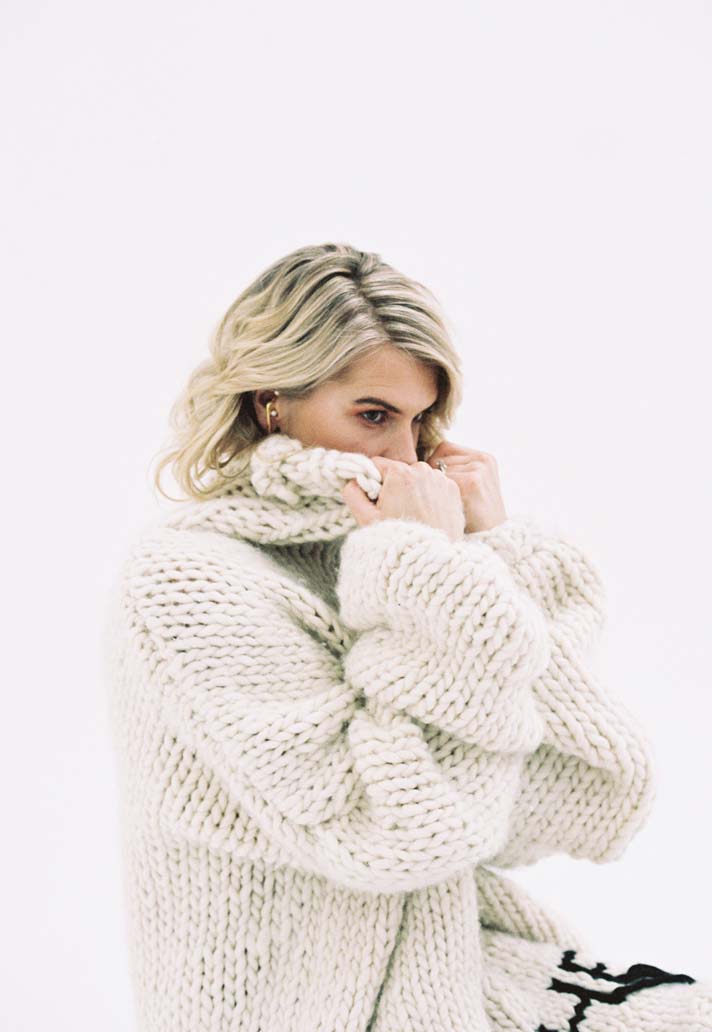
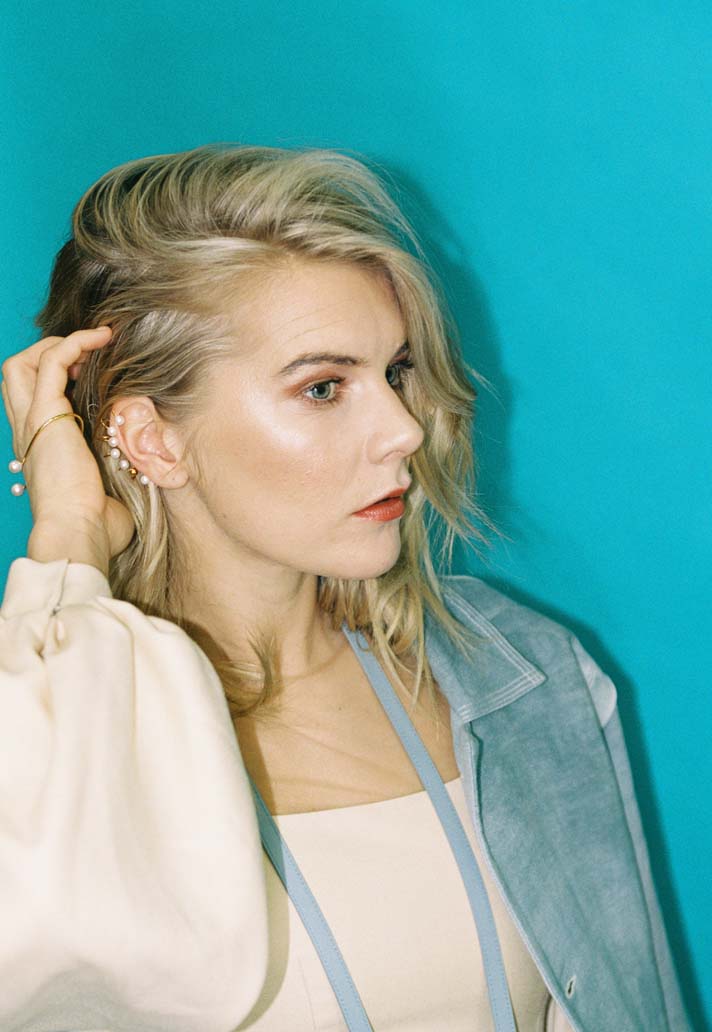
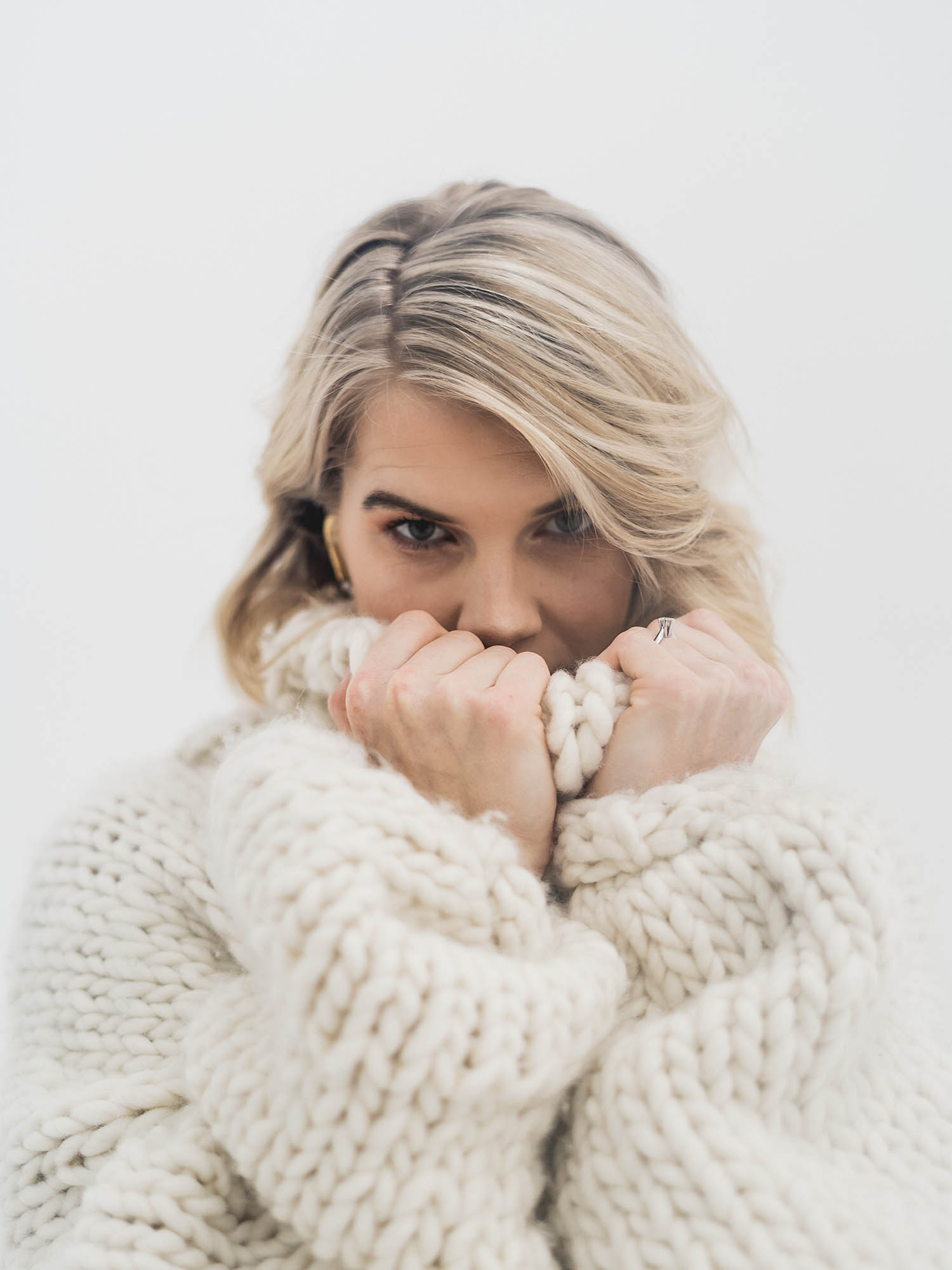
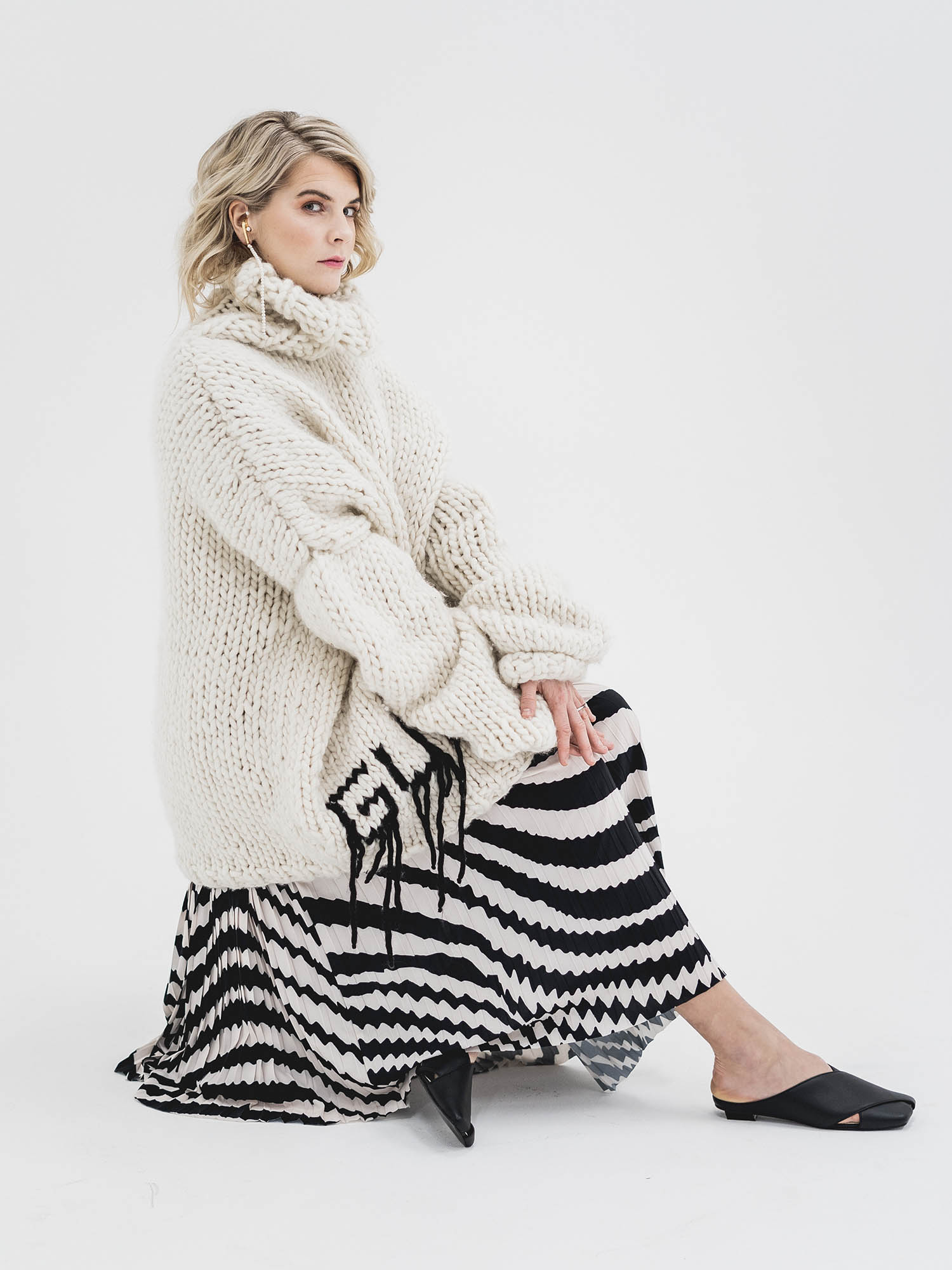
Looking at that “quality” you talked about, what about life off the pitch and things you do there. Moving into fashion and things like that, is it important for you to always be associated with those at the top or say brands that have a forward thinking mentality?
I think it’s all about authenticity. It’s not so much about the level of something, it’s more about doing things that suit you. I personally look to work on things that I genuinely like and feel that they reflect me. I was excited for a SoccerBible shoot because I like the mixing of sports and fashion because you express yourself out on the pitch but off the pitch you might have a different character outside of the pitch. Doing photoshoots and linking up with people like yourself is something that can also give me an adrenaline rush and it’s a cool opportunity that football can give you when you perform.
So I always enjoy doing those things because it gives me new experiences. I feel like you can get a lot of inspiration and culture from places away from football that help you get that balance. Reading books, listening to music, following fashion and lifestyle - I think there’s so many things that you can soak up inspiration from in order to become a better player.
Do you have an ambition to explore more cultures away from football like fashion as an example?
I feel very lucky because football has given me so many opportunities outside of the pitch as well. First of all you need to keep a balance and assess how much time you have outside football because the game takes all your time and your mind. It’s good to look for that balance though through outside interests. I feel like you need to attach yourself with things you believe in most importantly off the pitch. That keeps the quality high. I’m excited for the future and where things go on and off the pitch.
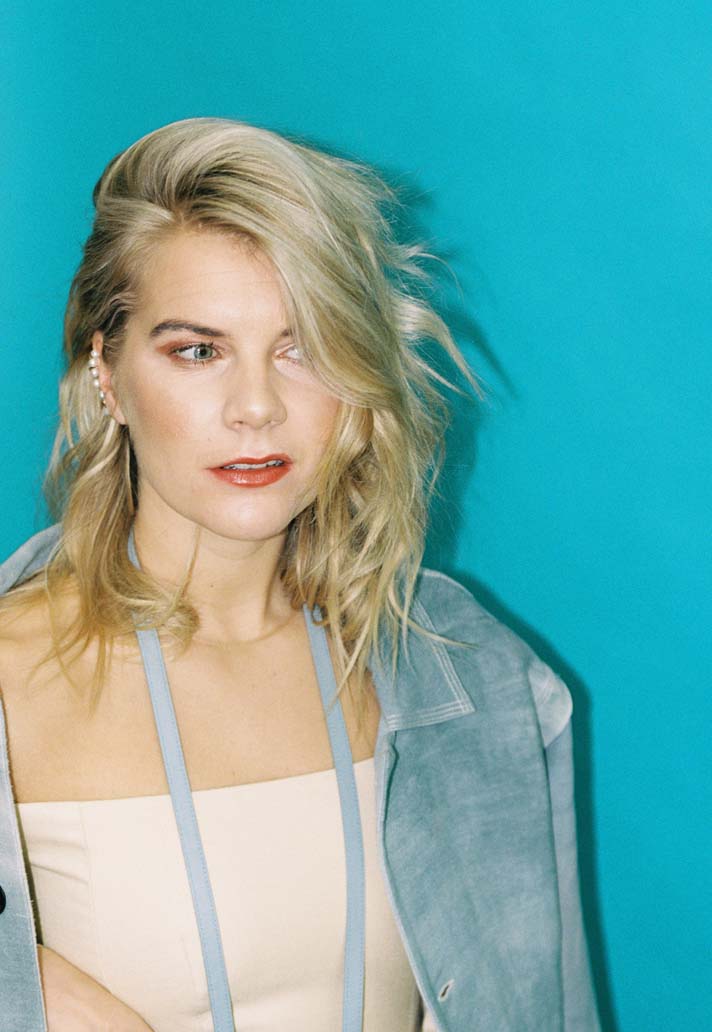
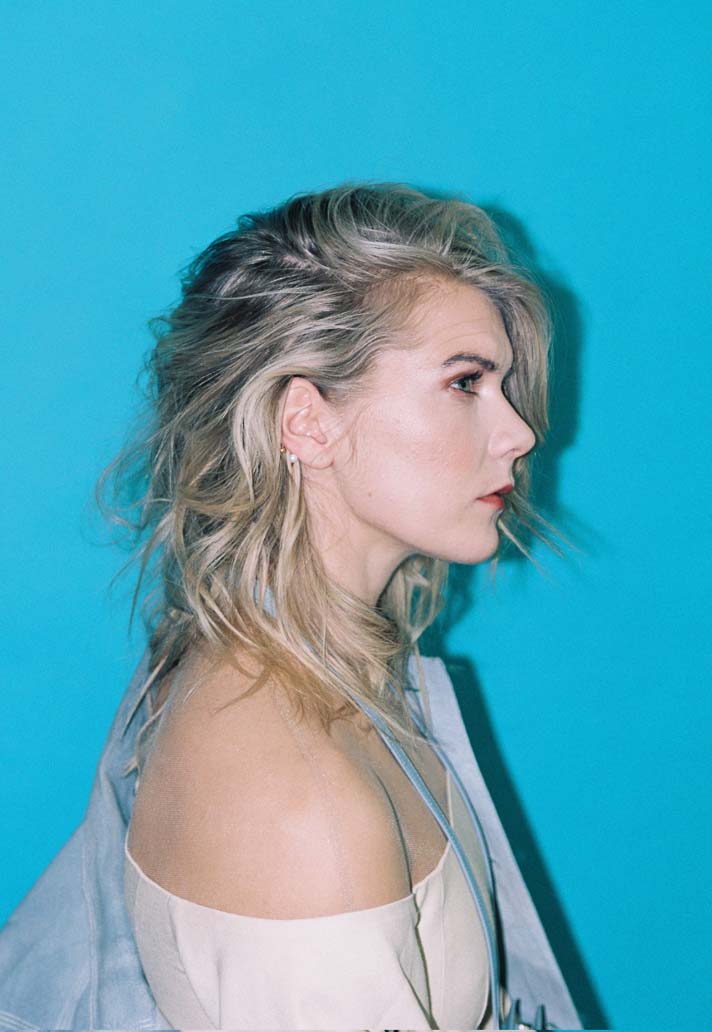
Photography by Scander Aidoudi / Pete Martin
Styling by Bruno D'agostino
Hair and Make Up by Suky

